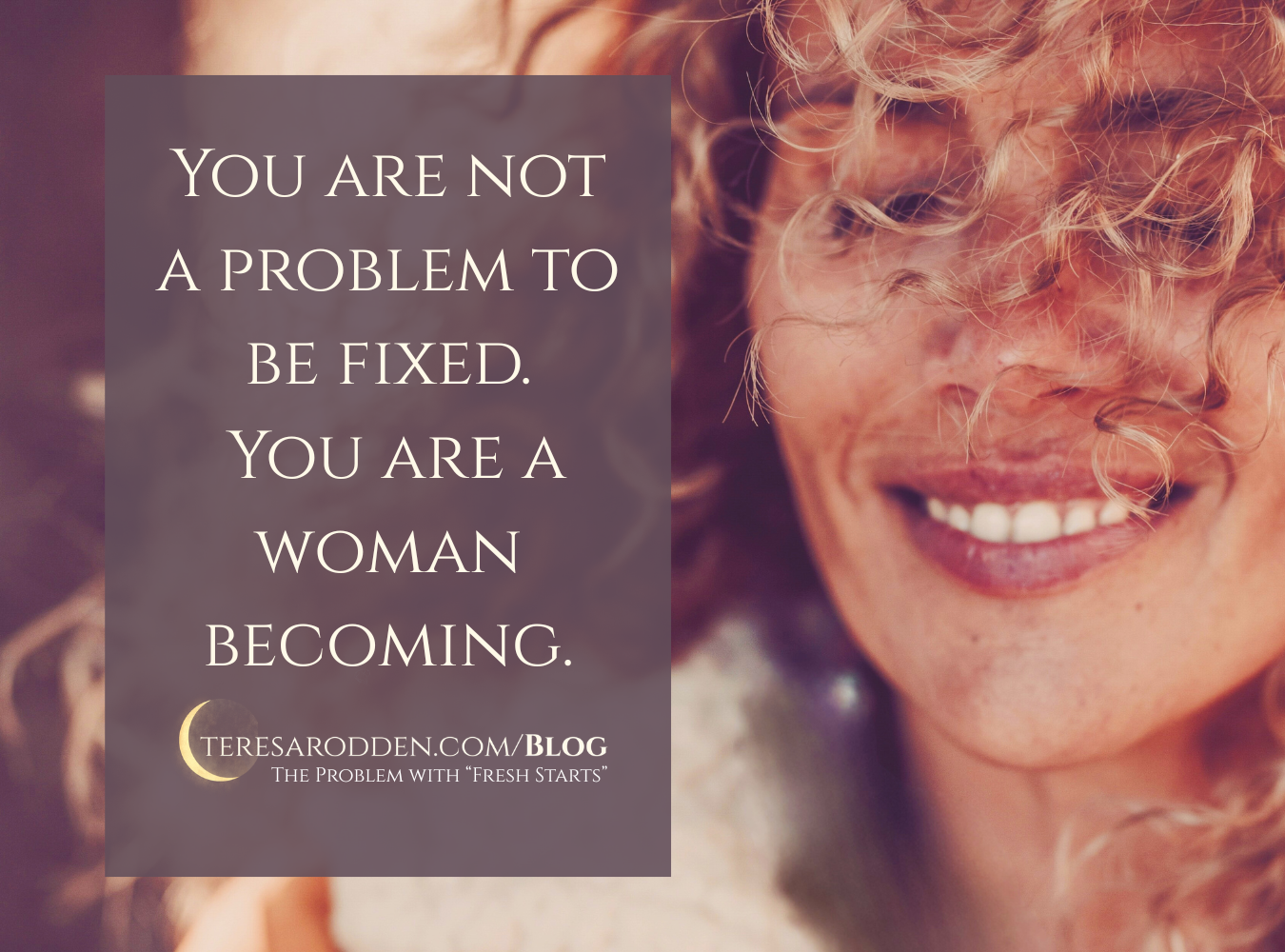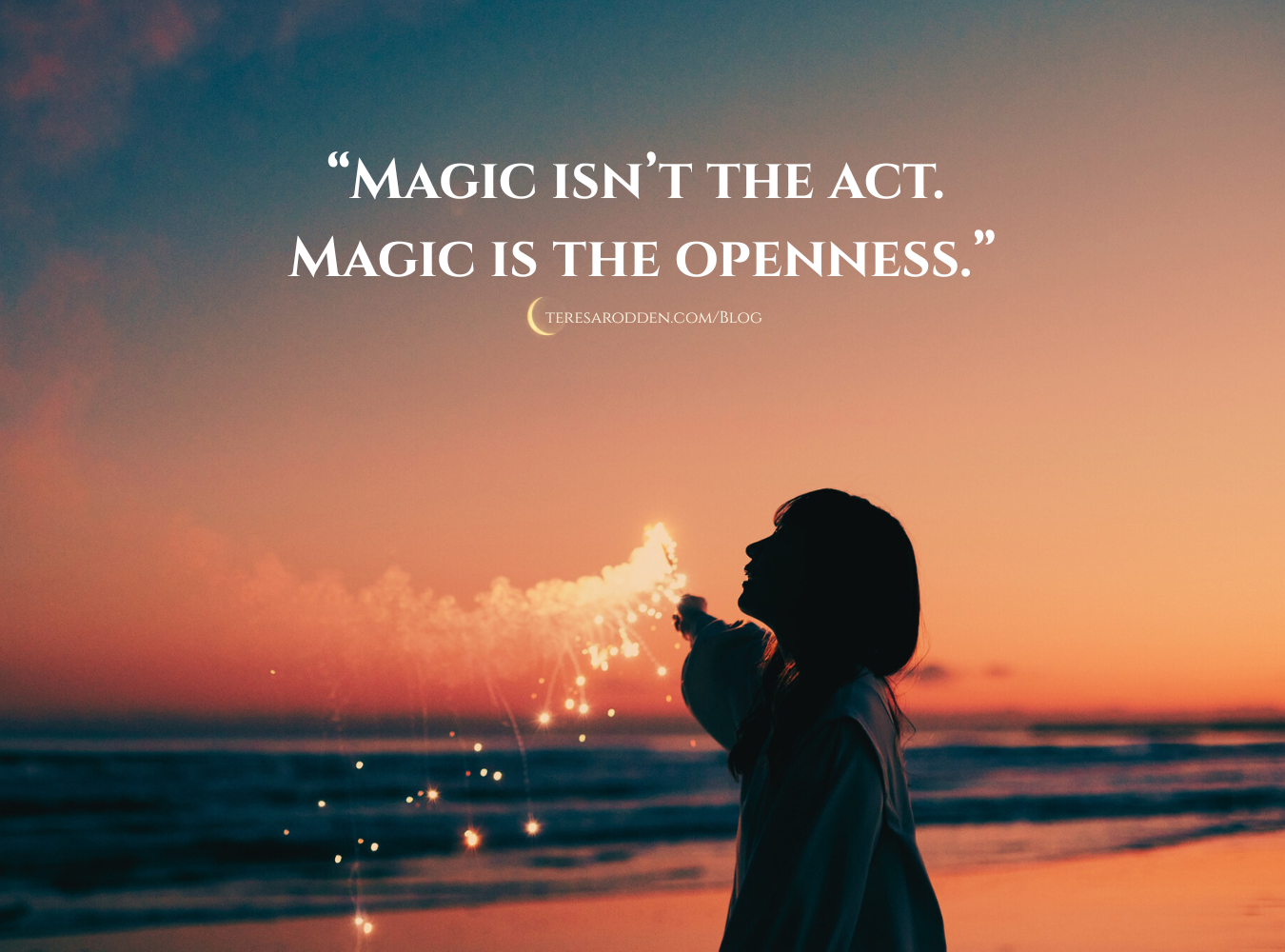If Your Story Were Written, Would You Be Proud?
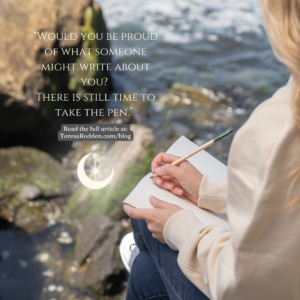
The Unrecognized Sacrifices of Women
I’m at the end of the book, and it says the women ancestors in the stories gave their heads without title or recognition—meaning they suffered the same pain in many ways as men who gave their heads, but without historical recognition. More men than women are written about, more men than women have their poems published, and their stories told—even though women are the ones who birth the children to carry on the legacies, manage the households, and keep it all together.
A question is posed: “Could they (our female ancestors) have imagined us?” Could the women of the past have imagined the women we are today?
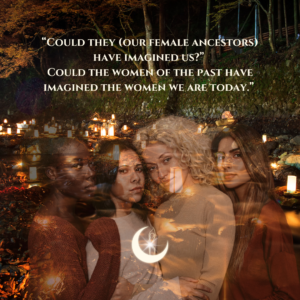
Giving Voice to the Women Who Came Before
When writing Wholly Sober, I distinctly remember feeling the presence of my female ancestors surrounding me, and I wept more than once. Maybe it was just my imagination, but I felt like I was giving them a voice, or that I was to use my voice because I had watched them not use theirs. I watched them not live full lives, not step up to the plate and take a swing for their dreams—if they even dreamed. They did not try to be bold and live extraordinary lives—except when they were drunk. And that never went well for them. Instead, they took life in scraps and made do whatever was thrown at them. That doesn’t make them bad people.
I asked my mom repeatedly what she would do differently in the last year of her life, and she couldn’t imagine past the limitations of what had already been. I would have treated Bob better, she said. Bob had left her for another woman and Bob knocked her teeth out when she was just in her twenties. She couldn’t dream past her fixed expectations for herself.
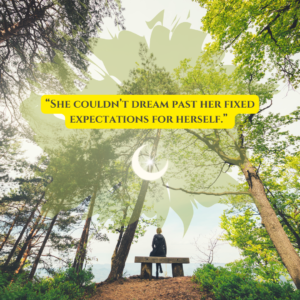
Overcorrection: A Daughter’s Response to Silence
Many would say I overcorrected because I didn’t see my mom speak up for herself, make a life of her choosing, or explore the possibilities of who she could be. I turned cold and disconnected as I developed into a self-sufficient, self-preserving woman. This shift impacted not only my relationship with my children but also my friendships and romantic relationships. I struggled to trust, to be vulnerable, and to let others in. I built walls, believing they would protect me, but they kept me isolated. I could be crass and cut you with my tongue. I thought I was standing up for myself, but I was really keeping people at bay. I was independent, but I was also lonely, unable to bridge the gap between survival and true emotional connection. There were probably just as many drawbacks to my approach to life. I wasn’t soft or approachable. I didn’t cuddle my boys or read to them. I was not kind to my husband and friends were fleeting. I felt the stress and strain of being the provider, as men have always been expected to be, and I learned that alcohol helped me rest, “have fun,” not care, but it also got me into a lot of trouble.
Where my mother was overprotective, staying at home afraid of the world, I was bold and daring out in the world. But I missed making that deeper connection with my boys. I knew my mom loved me, and I loved her desperately—no matter what—until the day she died and beyond.
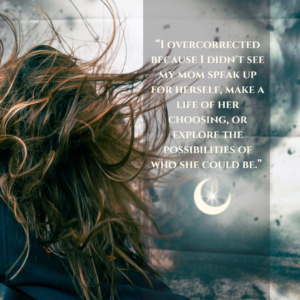
Love in Messiness: The Parent-Child Connection
Recently, I heard an author I follow say something about how, as children, we worship and idolize our parents. In our young adulthood, we realize they aren’t the superheroes we thought they were. In middle age, we may even feel as though they have deceived us in some way. Shortly after I stopped drinking, and many times in the last twenty-two years, I have given my boys a clear message: to come to me if they ever feel that my behavior or actions while raising them caused them harm. I don’t want them carrying around unnecessary resentment. Let me have it. I will not excuse it, but I know in my heart that I NEVER did anything intentionally to cause them harm. I was their protector.
Neither has taken me up on the offer, but I have never suggested I was a good parent or provider. I know I overcorrected, but they should never doubt that I would stand in front of a bullet for them. I love them deeply. My mother taught me how to do that, in all her messiness. She got love right.
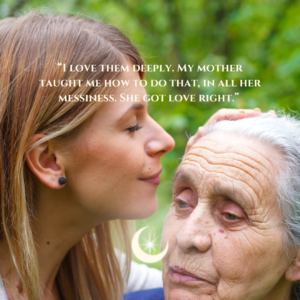
Choosing to Love Openly and Honestly
It wasn’t until I stopped drinking—several months after I quit drinking but not yet a year—where I consciously made the decision to love, to put down my guard, and to stop being cold and distant. And it wasn’t long after that when I decided that I didn’t want anybody to tell me who I would be or how I would be, because they didn’t know who I was. How could they? I didn’t. So, I walked away from a program so many swear by, and many others would rather die than follow, Alcoholics Anonymous. I respected the foundation it provided for many, but I found that its approach did not align with my beliefs or my need to grow beyond the identity of an alcoholic. I needed to define my recovery on my own terms, to trust myself rather than surrender to an external structure that never quite fit me.
To this day, I am still learning and growing. The deeper I go within and the more I put myself out there to experience life, the more I realize I still don’t know all of me. The more I unravel, the deeper my love grows, and the more compassion I have—not only for who I was but also for who I am and for those around me.
Being human is messy. We don’t come with a manual. Some of us are blessed with good humans who are good role models who show us how to be kind, compassionate, and loving. But many of us have experienced fear—of not being enough, of watching out for other people because they will hurt us.
I got to the point where I was tired of fighting. I decided I was going to love—openly and honestly. And if I got hurt, then I got hurt. But I couldn’t keep expecting it to happen because it was making me miserable, and I didn’t want to be afraid anymore. My resolve worked. I love deeply and honestly my family, friends, clients, and even strangers who are friends I haven’t met yet.
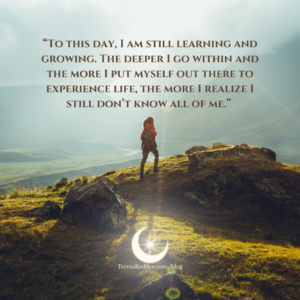
If Your Story Were Written, Would You Be Proud?
Several pages later in the book an Emperor on his death bed confessed, “I came alone, and I go as a stranger. I do not know who I am, nor what I have been doing.” Surely, in his ninety-nine years he had lived but without consciously reflecting and being intentional about who he wanted to be he died a stranger to himself.
I wrote my story, Wholly Sober. I connected with the women before me, and I expressed my pain, fear, and shame on the pages for the world to read. There was no holding back. I found freedom when I shared my darkest secrets, ugly thoughts, and confessed my fears. I also identified my strengths and realized what matters most so I stand firm in my convictions. I got to know more of me. I learned to love all of me.
So when you look at your life—knowing that we don’t know how long we have, whether today, one year, twenty years, or more—do you like who you are? Would you be proud of what someone might write about you? Of what you would write about yourself? Would you be pleased if someone captured your story in words on a page as you see it? What would you do? Who would you be?
There is still time to take the pen.
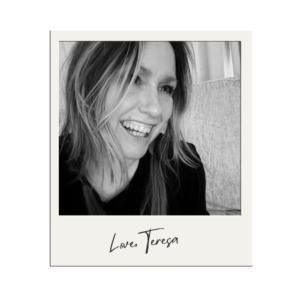 About the Author
About the Author
Teresa Rodden is a writer, coach, and advocate for women reclaiming their inner light and purpose. She is the author of Wholly Sober and the creator of 28 Day Resolve, a program that reminds women of their power, helping women reframe their relationship with numbing habits and rediscover their true selves. Through her work, she helps women in their prime move beyond harmful patterns and reconnect with their authentic selves.
📩 Connect with me on Instagram
